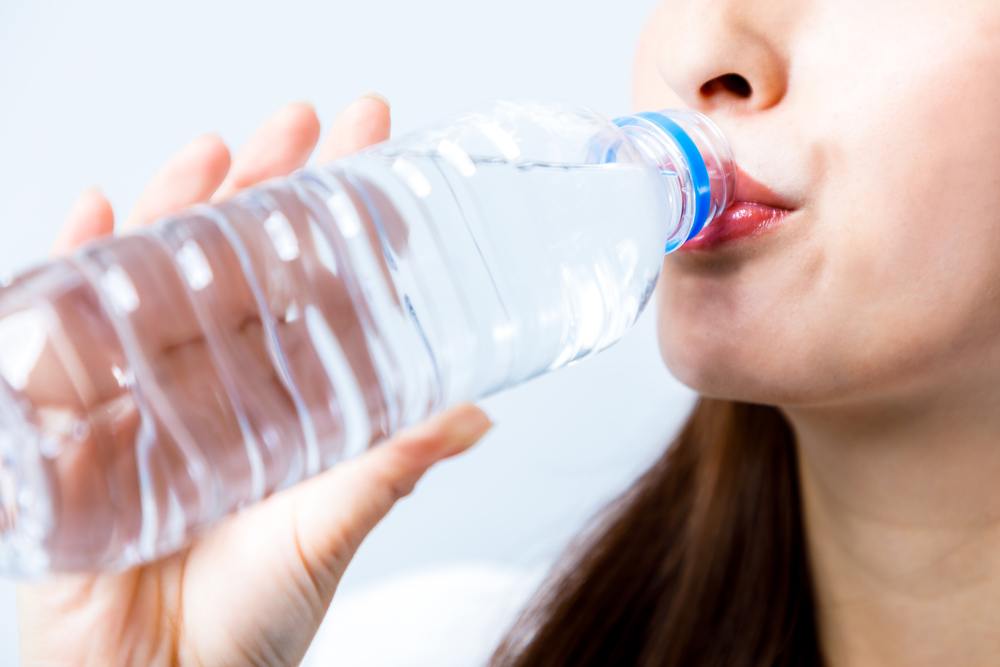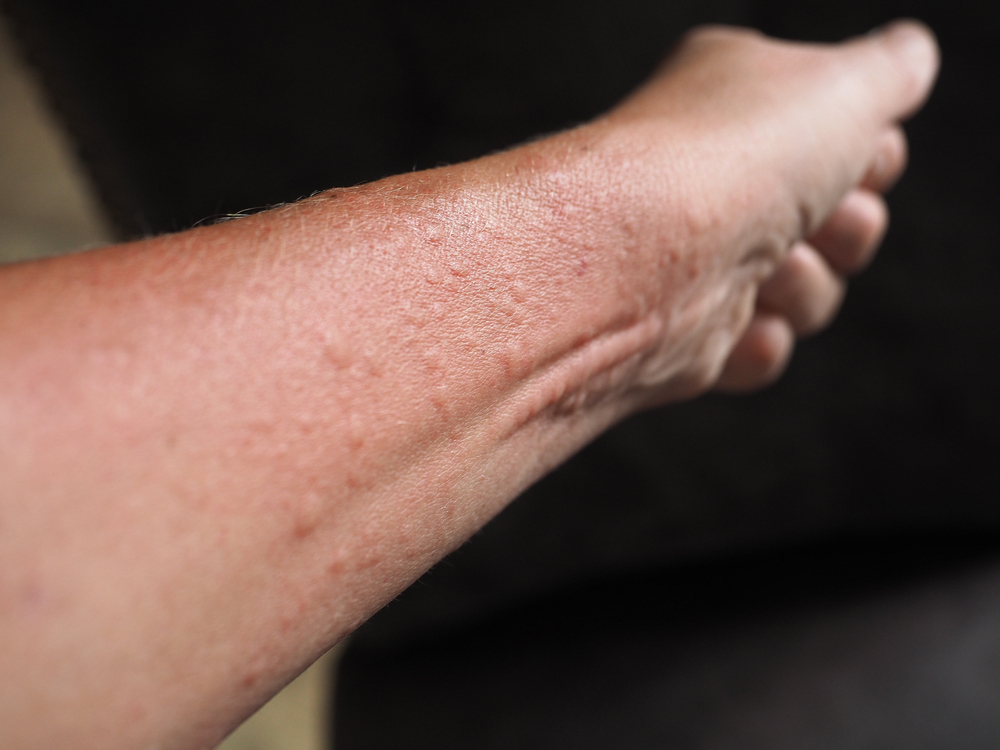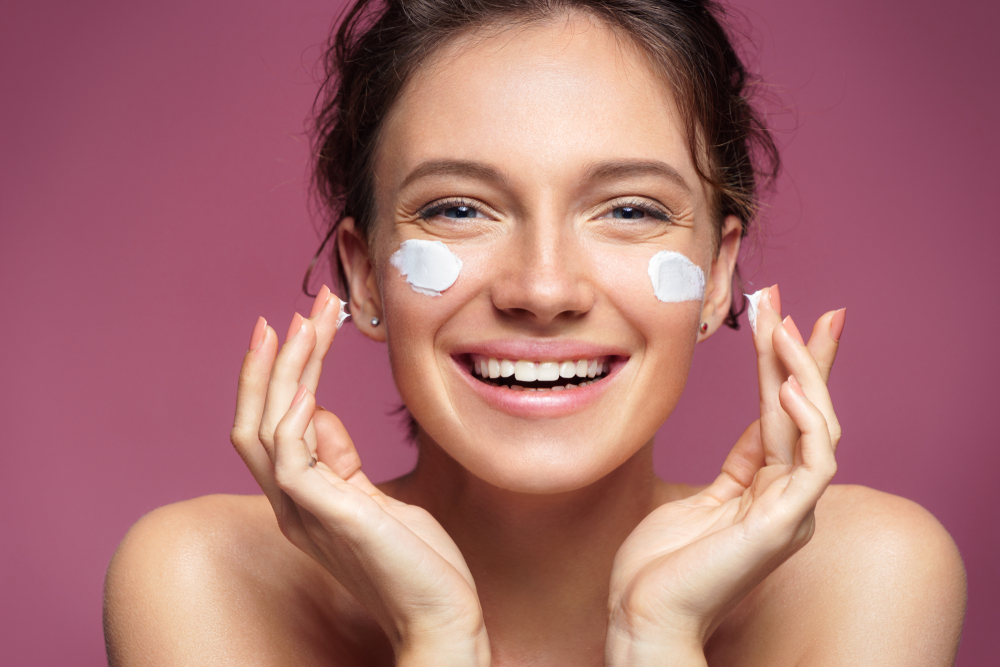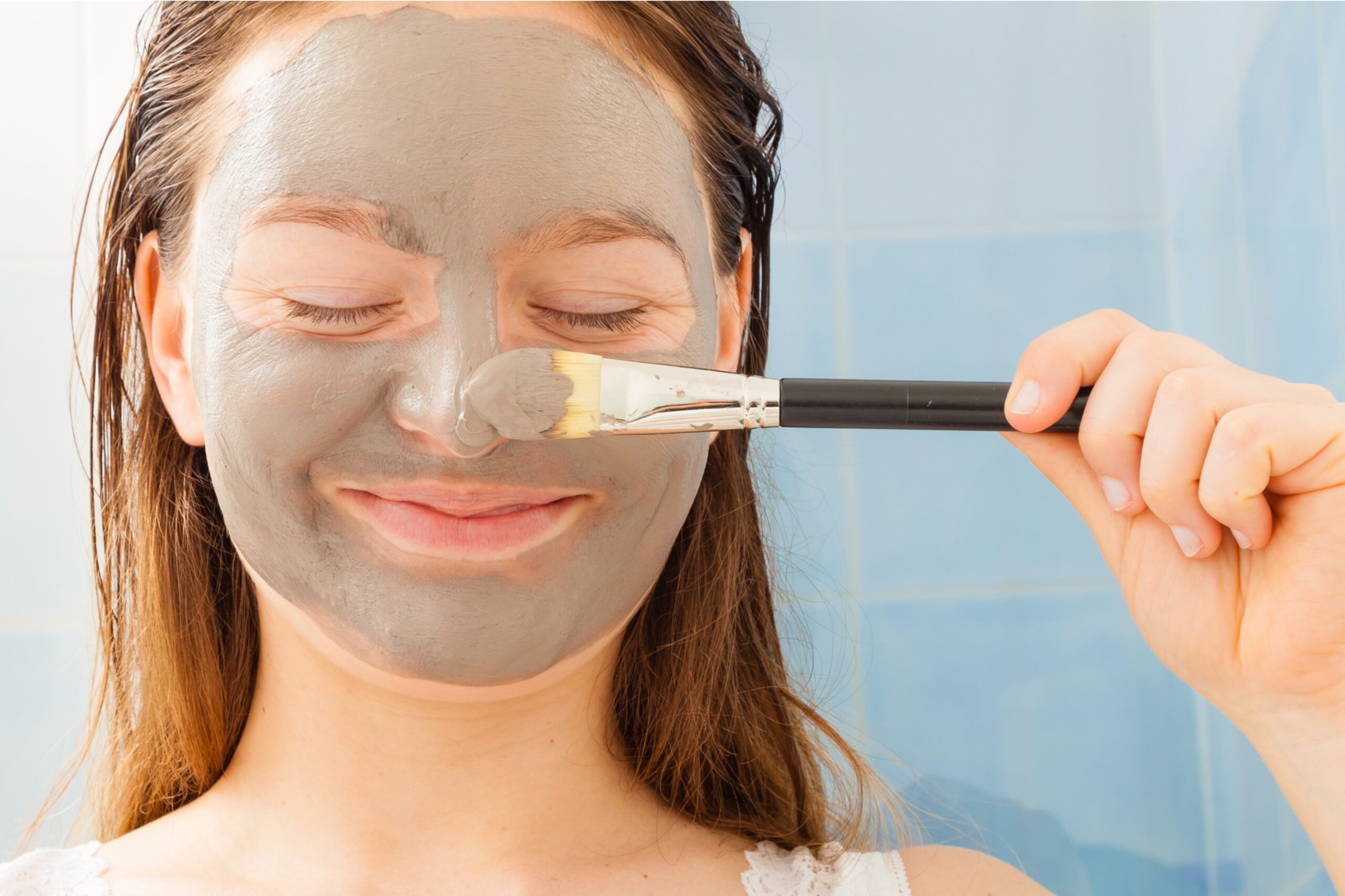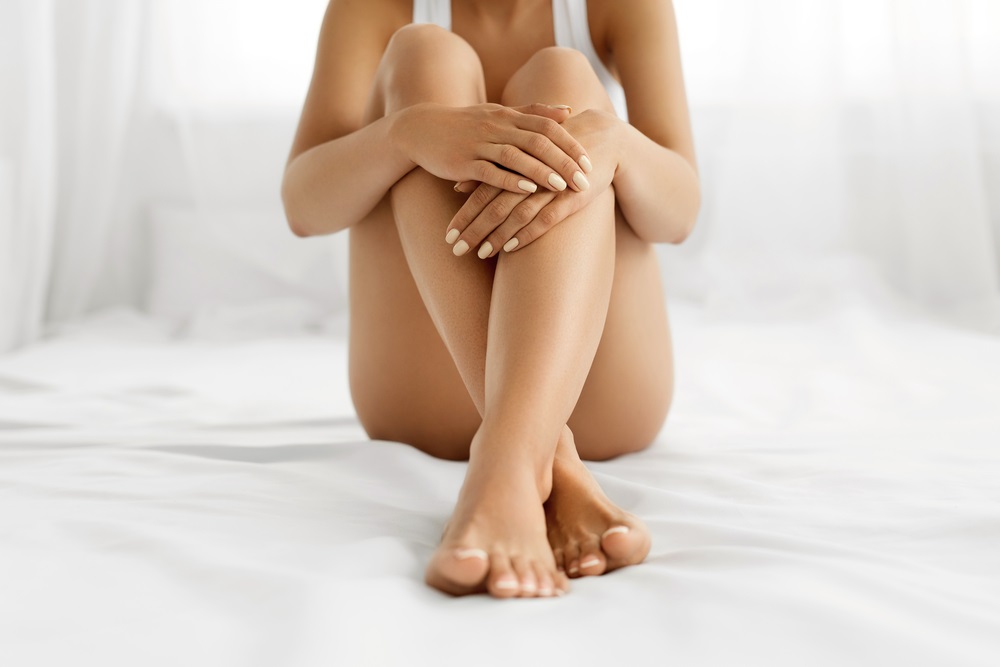There was once a time in your life when you could stay out until 2am, fall asleep in your make-up, and with nothing more than a wash and some moisturizer, look fresh-faced and all ready for work the next day. However, as you look over the fine wrinkles invading the corners of your eyes and that fresh pimple blossoming on your chin, you know those days are behind you.
But wait, you’re only in your 30s; isn’t it a little soon to be getting fine lines and worrying over the paper dryness of your cheeks? Well, without proper care, your skin could start aging faster than the rest of you does. So it’s always a good idea to recognize the signs of skin aging prematurely and learn what you can do to prevent it.
Tell-Tale Signs of Skin Aging
Obviously, some aging is inevitable. You’re not going to get to age 70 without a few fine lines and wrinkles to show for it. But that doesn’t mean you shouldn’t do everything you can to stave off the aging process and keep those wrinkles from getting a head start. Begin by acquainting yourself with the tell-tale signs of premature aging.
- Dry skin (dryer than usual that is).
- Fine lines and wrinkles.
- Dark circles under the eyes.
- Loose skin or skin becoming less elastic than before.
- Spider veins on the face and hands.
- Blotchy complexion.
- Age spots (also known as liver spots).
We know what you’re thinking. These are tell-tale signs of aging, period. It may not be easy to tell if your skin can be improved or if it’s marching inevitably through the natural aging process. The following tips are not just great for your skin but for your health in general. Why not do everything you can to have the best, youngest-looking, cleanest complexion your body is capable of?
1. Wash Your Face (But Not Too Much)
Remember that 20-something you who would crash with her make-up on after a long night? Don’t do that anymore. As you get older, your body starts succumbing to the will of hormones once again, much like in high school, and pimples will become a regular part of your complexion if you’re not careful. Nothing brings pimples out more than sleeping in oily make-up.
Of course, it’s just good practice to wash your face regularly as it is. A clean face with clear pores is a healthy one. However, the American Academy of Dermatology (AAD) warns against washing too often or too vigorously. They recommend washing your face twice daily and after periods of profuse perspiration. They also suggest using lukewarm water and a non-abrasive cleaner. Finally, when you wash, wash with your fingers and not a cloth or sponge. You want to avoid irritating your skin as much as possible.
2. Wear Sunscreen
You’ve certainly heard this one before. However, like most people, you probably only slather on the sun protection for the occasional afternoon at the beach. If you really want to protect your skin, then wear sunscreen every day. Apply it before you go outside even when the sky is overcast or if you’re just taking a quick walk down to the corner store. On really sunny days, apply it every few hours for maximum protection.
This can’t be overstated. Sunscreen is your number one defense against harmful UV rays — especially UVA — and the damage they do to your skin. Without it, your skin will become dry, leathery, and splotchy. You could also develop skin cancer. Choose a sunscreen that is broad spectrum, water resistant, and has an SPF of 30 or higher to prevent lasting damage from sun exposure.
3. Stop Tanning
We’ve already gone over the damage that sun can do to your skin. Well, don’t think that a stint in the tanning booth is going to protect you from that damage. Tanning beds and lamps are just as harmful to your skin as too much sun. They too hit you with UV rays and provide a significant cancer risk.
If you simply must have that tanned complexion, consider a spray or similar artificial tanning product. They may not feel as natural, but they are significantly safer. Get one with dihydroxyacetone (DHA) as the active ingredient. This is the only self-tanning chemical that is FDA approved.
4. Moisturize and Exfoliate
We’ve lumped these two together because everyone knows you need to moisturize your skin, but not everyone appreciates the importance of exfoliation when it comes to preventing dry skin.
In addition to moisturizing multiple times a day, you should be exfoliating at least once every two or three weeks, however, no more than once a week. Exfoliating removes dry and dead skin. It also unclog pores and makes your skin more receptive to the benefits of moisturizers.
Just remember that if you exfoliate too often, especially in drier climates, you’ll risk drying your skin out even more.
5. Spot Treat Pimples
Remember what we were talking about earlier, about how hormones go crazy once you reach middle age?
Well, expect to get the occasional pimple at this time of life. Don’t treat these pimples with a whole face cleanser unless you want to make your already dry skin even worse. Instead, just spot-treat pimples as they arise, using soap and creams dedicated to this purpose.
6. Get More Sleep
It’s called beauty sleep for a reason. When we don’t get enough sleep our skin can get blotchy. It also becomes less elastic, resulting in sagging skin and wrinkles. And of course, there are those deep circles we not-so-lovingly refer to as “raccoon eyes.” In fact, sleep deprivation is one of the leading causes of premature aging, putting stress on more than just the skin. Studies show that lack of sleep leads to thinning hair and weight gain. It also slows the healing process and exacerbates chronic conditions. Getting enough sleep keeps you healthy and your body functioning properly.
How much is enough sleep? Some beauty sites will tell you that 6-7 hours should do the trick, but the National Sleep Foundation recommends 7-9 hours of sleep a night for the average adult. Still, you know when you feel rested, so use your best judgement.
7. Drink More Water
In general, Americans don’t drink enough water. A 2013 study found that only 22% of American adults drank the recommended eight cups a day. 35% drank between four and seven cups, leaving 43% who drink fewer than four cups a day. Dehydration spells trouble for the skin. It weakens elasticity, leading to fine lines, wrinkles, and sagging.
Remember that we get fluids from more than just straight water. Juice, broth, and many foods provide us with some degree of hydration. Still, nothing can replace an old-fashioned glass of ice water. Even if you can’t find it within you to drink a full eight cups every single day, you can still probably do a little better than you’re doing right now.
8. Drink More Milk
Wait, we were just telling you to drink more water. Now we’re asking you to drink more milk too? The truth is that milk actually contains a ton of skin friendly nutrients.
Like water, milk hydrates the skin but also contains vitamin A, amino acids, calcium, and proteins that nourish it. Vitamin A in particular boosts elastic and collagen production in skin, helping to reduce wrinkles, while calcium has rejuvenate properties and is helpful in preventing skin cancer.
9. Eat Healthier
More specifically, eat a diet rich in vitamins and minerals. Fresh fruit, vegetables, and nuts are typically high in antioxidants, a potent anti-aging substance. Antioxidants are also helpful for preventing cancer by inhibiting oxidation in the body, a process that yields free radicals, which in turn damage cells.
Vitamins A, C, and E are all powerful antioxidants. They are found in several foods, in particular blueberries, strawberries, raspberries, green leafy vegetables, beans and nuts – especially pecans. In addition to your fruits, veggies, and legumes, make sure you get plenty of heart-healthy proteins and healthy fats.
10. Cut Back on Smoking and Drinking
If you’re a smoker, then quit. Smoking is a one-way ticket to tired, leathery skin. The carbon monoxide in the smoke decreases circulation to the skin and dries it out. Reduced circulation leads to reduced collagen growth and elasticity.
Drinking can also dry out the skin, but it’s far less efficient at it. You don’t need to swear off summer margaritas altogether; just have one or two fewer than you might normally.
11. Meditate
Okay, so maybe sitting with your hands in your lap for thirty minutes isn’t quite your thing. If not, then find some other way to chill out. The important thing is that you relax. Stress weighs heavily on the skin. It releases cortisol into the bloodstream, which diminishes muscle, resulting in thinner and more wrinkled skin.
Not to mention, stress can contribute to eating and sleeping problems, which themselves have negative effects on skin. In extreme cases, it can even make you lose your hair. Take a nice hot bath. Read a good book. Dance maniacally to techno music in your underwear. Figure out what relaxes you and embrace it.
12. Watch Your Facial Expressions
This is one of the odder suggestions. Some beauty sites will tell you to avoid making “too many” facial expressions to avoid getting wrinkles. What exactly, “too many” means is up for debate. Obviously having expressions is natural, and we have to set reasonable limitations on our willingness to sacrifice for younger looking skin.
However, it’s true that repeatedly making the same expressions will eventually result in fine lines and wrinkles forming. When we move, our muscles contract. When this happens over and over again it creates wrinkles. The American Academy of Dermatology suggests avoiding repetitive expressions or holding the same expression for too long a time. The same can be said for holding your head in any given position for an extended period, like looking down at a laptop screen. Be cognizant of how much you’re squinting or frowning, but don’t go overboard. You should never be afraid to smile.
When considering these anti-aging tips, it’s important to remember that skin care isn’t only about the face. Pay attention to your hands and neck as well. They are also prone to dryness and will be some of the first places to show signs of aging. Remember to moisturize them, protect them from sun damage, and keep them clean.
Also remember that aging is a natural process. If you do everything listed here but still spot some fine lines forming somewhere down the road, it doesn’t mean these strategies aren’t working. Keep at it and you’ll have healthy skin in no time.





